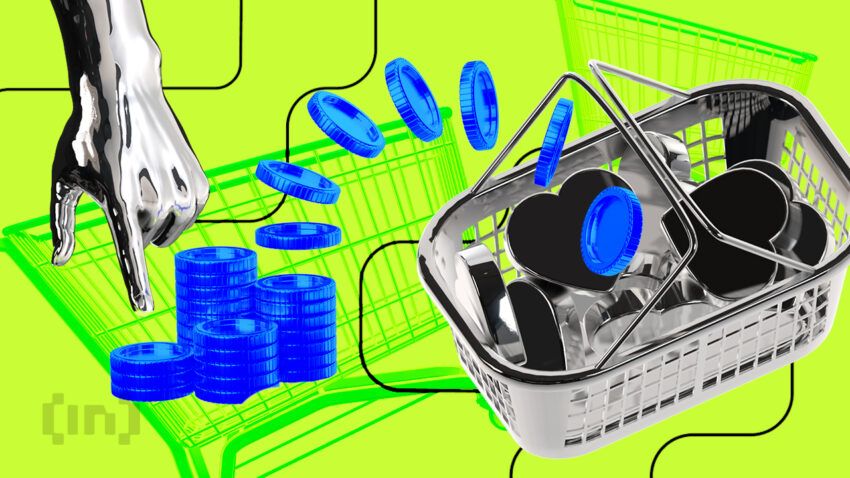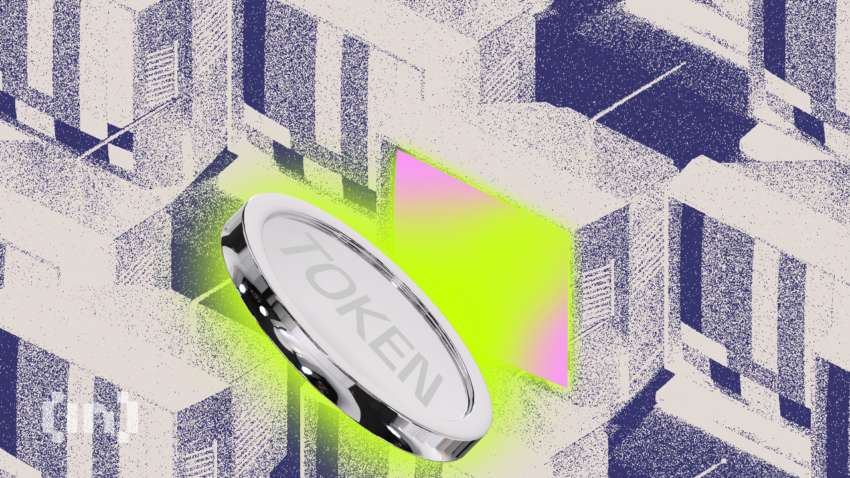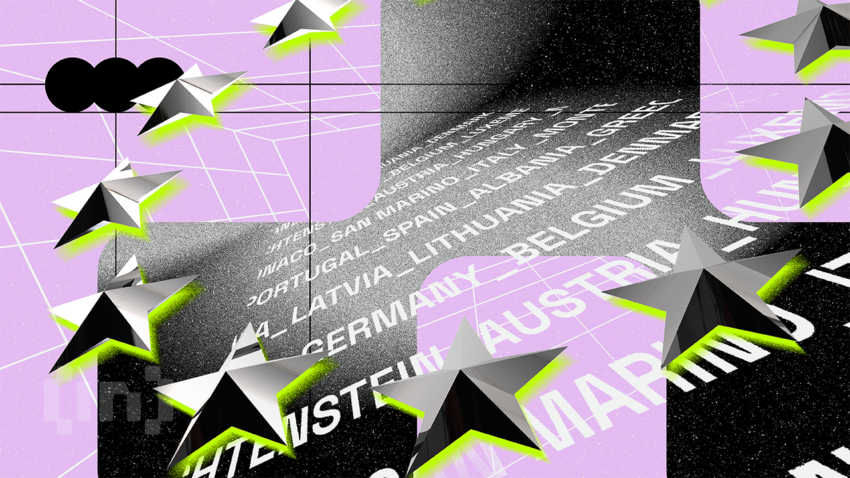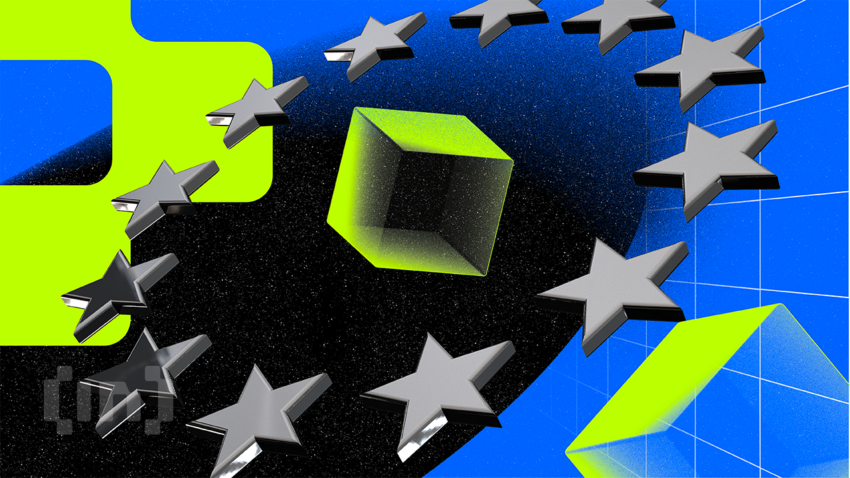Tokenization has taken off across many different sectors in regions worldwide. At the start of 2023, there is a diversity of definitions, use cases, and legal frameworks — at varying stages of maturity. Tokenization is poised to be a disruptor, wedging its way into almost every nook and cranny of the market economy. Europe has the opportunity to be at the forefront of this innovation cycle, placed perfectly to spearhead the ‘tokenisation of everything’ and create a token economy.
But what is the potential of a tokenized economy? What exactly is a token, and how transformative can the phenomena be? Here’s what you need to know.
- Where are we now? A quick look at today’s tokenization landscape
- What is a token?
- What is tokenization?
- Different types of tokenization
- Why does tokenization matter?
- Tokenize Europe 2025 and the road to a token economy
- Education will drive the adoption of a token economy in Europe
- Frequently asked questions
- About the author
Where are we now? A quick look at today’s tokenization landscape

Web3 companies are building new infrastructure to facilitate the tokenization of real-world assets. Institutional players are dabbling in DeFi to drive down settlement costs for agnostic assets through blockchain technology. Stablecoins are proliferating globally, facilitating financial inclusion and taking up the mantle as a means of payment.
Some jurisdictions actively support the uptake of a tokenized economy, creating new regulatory authorities, such as the UAE’S Virtual Asset Regulatory Authority. Others, like Europe, are moving ahead with landmark legislation through the Markets in Crypto Assets Regulation. The United Kingdom and Singapore are also creating bespoke regimes to drive the adoption of the token economy. Others, such as the United States, are taking a more hawkish stance. Recent financial meltdowns have raised eyebrows among legislators in Washington and federal regulatory agencies.
Non-Fungible Tokens (NFTs) are cementing themselves as a future fixture of the creator economy. They are also expanding in reach to include novel web3 identity primitives such as SoulBound Tokens, which bridge the information asymmetries and collateralization gaps in DeFi. In parallel with crypto-native developments, central banks globally are actively engaged in digital currency research and pilots.
What is a token?

A token is a representation of an asset in digital form that is combined with information and access rights, connected through programmability and automation. Tokens can represent physical, tangible, or otherwise digitally native assets that exist intangibly from the outset.
Through distributed ledger technology, tokens can be owned, transferred, or possessed and, in turn, stored in wallets.
What is tokenization?
Although not relegated to blockchains, tokenization that uses distributed ledger technology creates different asset representations and accompanying information and access rights in a digital form. DLT-based tokenization can employ various forms of cryptography, such as reversible or non-reversible cryptographic functions, to create tokens and secure high-fidelity data. Blockchains, as append-only ledgers, record and store ownership of tokenized assets.
Different types of tokenization
Tokenization can be both blockchain and non-blockchain based.
Blockchain-based tokenization
Fungible tokens – transferrable tokens of identical values can be swapped for one another. The most common fungible token standard is the ERC-20 token standard on Ethereum.
Non-fungible tokens– as the name implies, these tokens cannot be copied, divided, or substituted for one another. The ERC-721 token standard on Ethereum supports a widely used cryptographic programming method for non-fungible tokens.
RWA tokens – real-world asset tokenization can sit between fungible and non-fungible tokens representing real assets that are tradeable on-chain. Fungible RWA tokens can represent things such as shares for companies or collateral for loans. Non-fungible RWA tokens may represent real property, physical art, or collectibles alongside in-game assets, music, or text.
Governance tokens – governance tokens are used to represent ownership and instantiate voting rights in decentralized protocols. These voting rights can vary from protocol development to budgetary allocation. In proof-of-stake networks, for example, governance token holders use their tokens to vote on such changes and amendments.
Utility tokens – utility tokens grant users access to given products or services within a certain blockchain network. Utility tokens can be used as mediums of exchange on different blockchain networks or serve as tools for capitalizing and financing projects. They can also be used for operationalizing transaction fee payments.
Non-blockchain based tokenization
Vault tokenization – a tokenized vault database is maintained to store sensitive data and information and any non-sensitive counterparts. A table comprising sensitive/non-sensitive data can be used to detokenize newly tokenized data.
Detokenisation is the reverse of tokenization, whereby initial data is obtained from tokenized data inside the vault. Non-sensitive data must be replaced with sensitive data to retrieve the initial data.
Vaultless tokenization – does not involve using vaults for storing data or information. Vaultless tokenization is more secure because it employs secure cryptographic devices leveraging standards-based algorithms. These algorithms can convert sensitive data/information into non-sensitive data/information or generate tokens. These tokens can generate original data outside a tokenized vault database environment in detokenization. A common use case for vaultless tokenization is in payment processing and database maintenance.
Why does tokenization matter?
Industry 4.0 is a catch-all term for business models and use cases that broadly cover the Internet of Things (IoT), big data, decentralized finance, mobility solutions, gaming, and supply chain/trade finance. Tokenization is like the glue bringing all these individual parts together through positive spill-over effects driven by reduced transaction costs, automation, and new identification technology and methods.
The ability to use programmable money in supply chain logistics and trade finance would eliminate back-office redundancies through automation and atomic settlement.
New business models built on fractionalization could allow micropayments, while granular data insights could make pay-per-use models the mainstay over traditional financing and leasing.
A token economy built on this granular data would use adaptive logistics and self-monitoring, also giving rise to self-attesting machine identities and machine-to-machine payments. Those payments could use stablecoins or programmable CBDCs to transact independently and manage their self-hosted wallets. CBDCs and stablecoins could also reduce cost and settlement risk in cross-border payments. Digital twins will be able to use off-chain data to drive actionable insights for companies and consumers, allowing for individually catered product and service offerings that are impossible today.
Tokenize Europe 2025 and the road to a token economy

The European Commission and German Banking Association founded Tokenize Europe 2025. Roland Berger moderates the event.
It consisted of expert working groups involving over 20 members ranging from blockchain associations, supply chains, chemicals, payments and banking, custody, energy, mobility, and the official sector across Europe. A series of boot camps followed the expert working groups.
These sessions built on the challenges and opportunities identified in the first stage of the initiative and followed them up with views on how tokenization could affect business organizations and the management agenda of companies across Europe.
The initiative created a target picture. It identified what the private and public sectors needed to arrive at a token economy for Europe.
Goals and requirements for a token economy
- Harmonization and clarity in standards and definitions used across official communication, regulation, and legislation.
- More knowledge exchange between the market and the public sector to ensure case-oriented legislation.
- Creating lighthouse initiatives where the private and public sectors can both showcase the feasibility of tokenization use cases.
- People across Europe need to be more interested in educating themselves and those around them.
- Information about the risks and accessibility of tokenized solutions should be made broadly available by governments and educators.
To achieve a ‘tokenized Europe, ’governments must protect consumers. However, this must be balanced with incentives for businesses to experiment and test new token models. Keeping regulation flexible by periodically taking stock-takes of the latest trends and market developments, organizing round tables, and commissioning a tokenization expert working group at the EU level would be one way to start.
Lighthouse initiatives are another way to promote innovation and raise awareness about token business models. Tokenise Europe 2025 identified the research and development of a tokenized CBDC. A private digital euro could be one such lighthouse initiative.
As a scalable form of programmable money, it could support both traditional payment methods and micropayments, fractionalization, and M2M payments. Therefore, a scalable form of tokenized commercial bank money should be an initiative of central and commercial banks working in partnership.
Finally, regulatory sandboxes, dedicated funding instruments, and subsidies for primary scientific research through innovation labs would do two things.
First, it would incentivize innovation through easier access to capital. And second, it would promote more interest in tokenization at the management level through this vote of confidence and attractive financing options.
Education will drive the adoption of a token economy in Europe
Achieving a ‘tokenized Europe’ will require changing how the web3 community and policymakers discuss emerging technologies with the public. Every successful paradigm shift has had to convince Main Street of its economic and social upside. Without the buy-in of European citizens, the token economy risks floundering or being relegated to the world of finance. All of the practical benefits of tokenization for the real economy require citizens to be more deeply engaged in the discussions and debates about how innovative trends will ultimately shape their lives.
Europe’s blockchain associations should take up a leading role in supporting policy advocacy and grassroots citizen engagement. That is how we ensure a developing token economy takes on democratic principles and reflects European values.
Frequently asked questions
Does Europe have a token economy?
Are NFTs important for the token economy?
Is there already a European lighthouse initiative?
About the author

Erwin Voloder has been involved in the blockchain sector since 2017, first as a start-up founder in Canada and currently as a regulatory and technical expert in Europe. He is a former economist with both the European Commission and European Central Bank. Currently he is Senior Policy Fellow at the European Blockchain Association, where he leads research and advocacy between the private sector and public policymakers. He participates in international working groups on tokenization and decentralized finance while also advising web3 companies and EU member state governments on blockchain policy and regulation.
Disclaimer
In line with the Trust Project guidelines, the educational content on this website is offered in good faith and for general information purposes only. BeInCrypto prioritizes providing high-quality information, taking the time to research and create informative content for readers. While partners may reward the company with commissions for placements in articles, these commissions do not influence the unbiased, honest, and helpful content creation process. Any action taken by the reader based on this information is strictly at their own risk. Please note that our Terms and Conditions, Privacy Policy, and Disclaimers have been updated.




